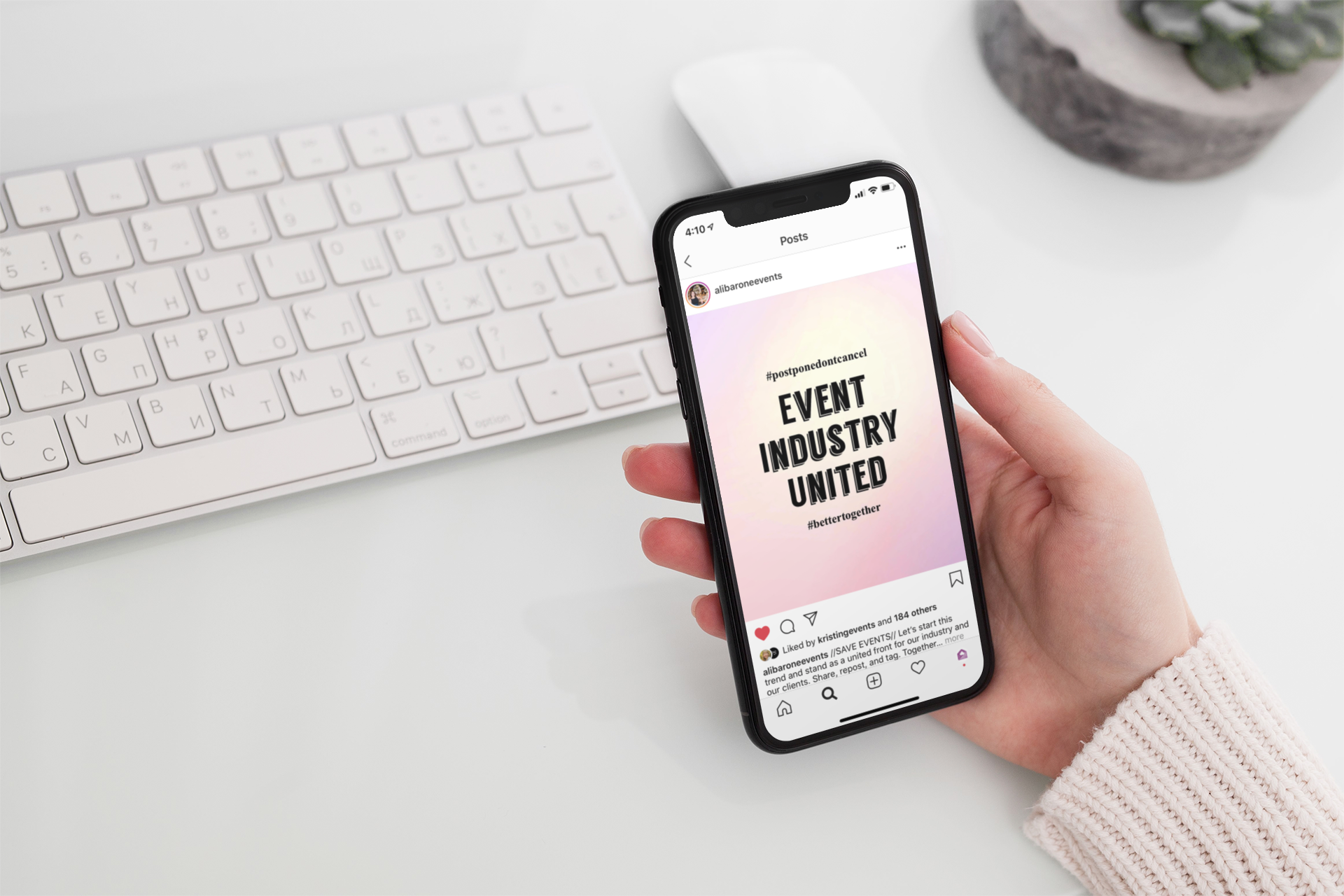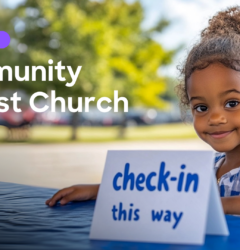30 Mar

Hosting Events In An Event-Free World (Part 2)
What the event industry is doing now to deal with the impact of COVID-19
Obviously, for the coming weeks (and perhaps months), events of all types will be on hiatus as citizens are asked to shelter in place and gatherings of more than ten individuals are prohibited or at least, strongly discouraged. While this puts many event management companies and platforms on hold for the time being, it hasn’t stopped some clever innovators from finding creative solutions to still host virtual events and get-togethers.
The reality is that in the present, there are only a few things that most event professionals can do:
- Evaluate their business to see if different aspects of their event planning can be digitized
- Stay in contact with clients with events in the summer and fall to continue preparations, on the hope that life will have returned to normal by then
- Begin joining with other event profs to work with local and national governments to keep the industry supported and vibrant for the future
However, this doesn’t mean that event profs work is done. In fact, there are many opportunities for event professionals to spend their time, energy, and creativity on right now. Here are just a few:
Virtual reality tech and “virtual conferences”
Long before COVID-19 put the brakes on the event industry, VR technology was already being explored as a method for increasing conference attendance and engagement and removing physical barriers to conference participation. Now, companies are already beginning to explore expanding VR as an alternative to traditional in-person conferences.
Perhaps the most prominent example is HTC, which has reacted to the current situation by hosting the first fully-virtual industry conference. Instead of hosting their HTC Vive Ecosystem Conference (VEC) in Shenzen, China as usual, the conference will be held entirely through virtual reality. The conference will be taking place within ENGAGE, the virtual reality training and education platform developed by Immersive VR Education.
The platform enables educators and companies to host meetings, presentations, classes and events with people across the world. Requiring little training or previous knowledge, the platform makes designing and implementing virtual conferences simple and efficient. Sessions can be hosted live or recorded and saved for others to experience later.
After a short intro by HTC’s Chairwoman and @cherwang and CEO Yves Maitre, HTC China President @AGraylin discusses how #COVID19 may lead to a new normal. pic.twitter.com/FW6fhhAk8g
— Michael Zhang (@mgzhangVR) March 19, 2020
Making virtual meetings and conferencing more personal and interactive
For years, webinars and livestreaming have been the solution for event organizers who needed to save funding or avoid the logistical hassles of gathering attendees from all over the world to a central meeting place. With this tech now becoming central to everything from public education to socializing, the trick for event planners is to optimize the way these tools are used to help increase engagement and make them a suitable alternative to the in-person conferences that have now been put on hold.
There are a few easy ways to do this:
- Evaluate your expected audience, and consider their needs when choosing the structure and content of your event. Consider soliciting feedback and suggestions ahead of time – not only will this make your attendees feel included, but can also help you figure out potential problems before the event itself.
- Put extra attention to the content you are presenting, and make sure that it is useful and engaging for your audience. Great content can breed great engagement.
- Consider avoiding “lecturing” during your webinar or videoconference, and instead think of ways to make the presentation more interactive. Live polling, Q+A periods, or even a “roundtable” approach to presentations and speakers can help drive better outcomes depending on the goal of your virtual event.
- Make sure to do a “dry run” before the scheduled conference, especially if you are trying out technology you haven’t used before. “Dead air” and awkward tech issues are an easy way to frustrate everyone involved, and also to lose the engagement of your audience.
Adapt your business to a philanthropic model and see how you can help your community
People often forget that the event industry goes far beyond individual event planners, and includes all of the vendors that rely on special events as the lifeblood of their particular business. From florists to caterers, venues to travel vendors, the moratorium on events ripples across a number of different professions.
Many of these individuals are starting to find new ways to put their skills to use in very different fashions. Here are just a few highlights:
- Many catering companies and chefs have found that there is a growing demand for family meal delivery, and have adjusted their staffing and practices to address that need. One particularly noteworthy example of this is three-star Michelin restaurant Alinea in Chicago. Where just last week, people were paying over $200 for the legendary tasting menu, now Alinea is making ready-to-pickup meals for just $35 a person, allowing ownership to hire back staff and generate revenue to continue payroll.
- Likewise, chef Jose Andres has transformed several of the restaurants in his Think Food Group into community kitchens, which are offering to-go meals several hours each day.
- Meanwhile, transportation company AOT Global and a coalition of other limousine companies serving areas throughout the United States have coordinated to transport older Americans who may be stranded at vacation rentals in Florida and other regions. The nonstop rides, which have discounted pricing, will offer door-to-door service in disinfected vehicles.
- Event venues of all sizes have begun to offer their spaces for potential field medical hospitals and other essential services.
While philanthropy isn’t the usual goal of event professionals, it is the basis for many of the events that makeup the industry as a whole. As such, it makes sense that event professionals may have some of the best ideas and innovations for helping out communities during these tough times.
The event industry is uniting to lobby for support globally
Finally, while these digital innovations offer a route forward for some array of events to continue in the future, the reality is that the weeks and months ahead will be a significant challenge for the multi-billion dollar event industry. Fortunately, momentum is already growing among event professionals to begin lobbying governments for support, similar to the pushes from the travel and tourism industries that are being equally affected.
Some event professionals are beginning to petition governments. Others are organizing concentrated lobbying efforts through social media outreach, and helping to gather support for a seat at the table. No matter how long social distancing measures and their impact on the event industry lasts, we anticipate a major surge in events to follow. It’s essential for the event industry to come together and work hand in hand with government and economic organizations to ensure it can get back on its feet when that time comes.










